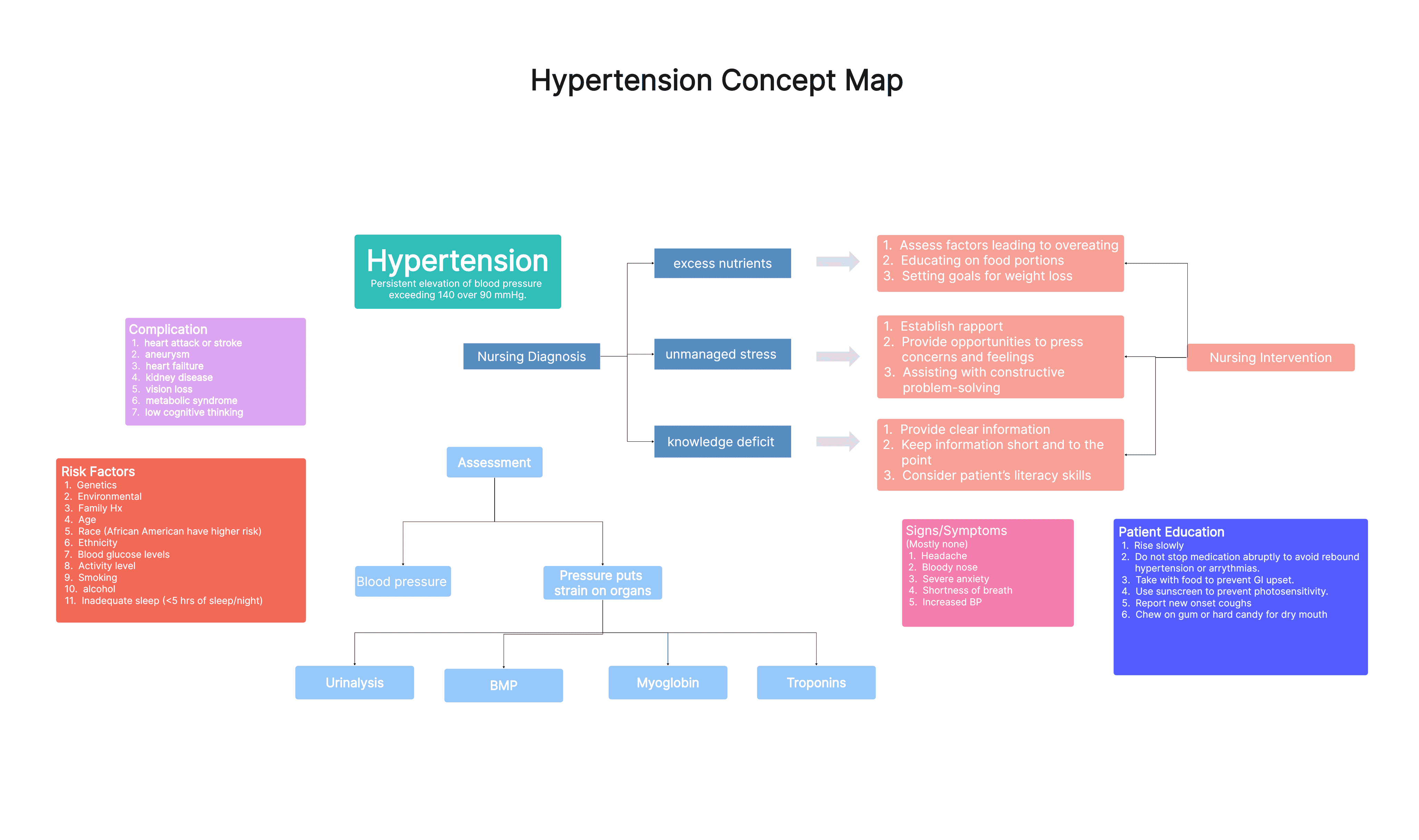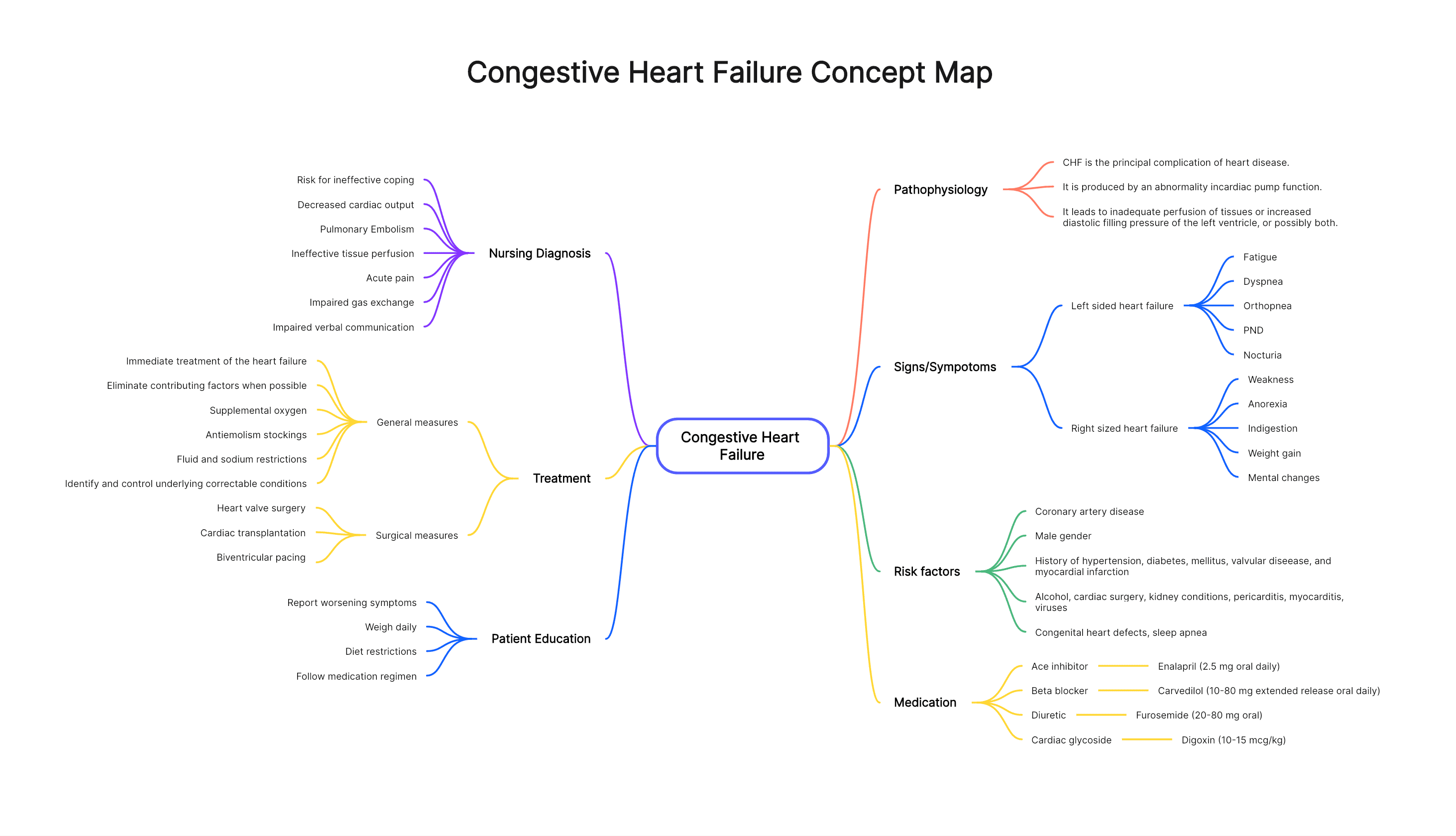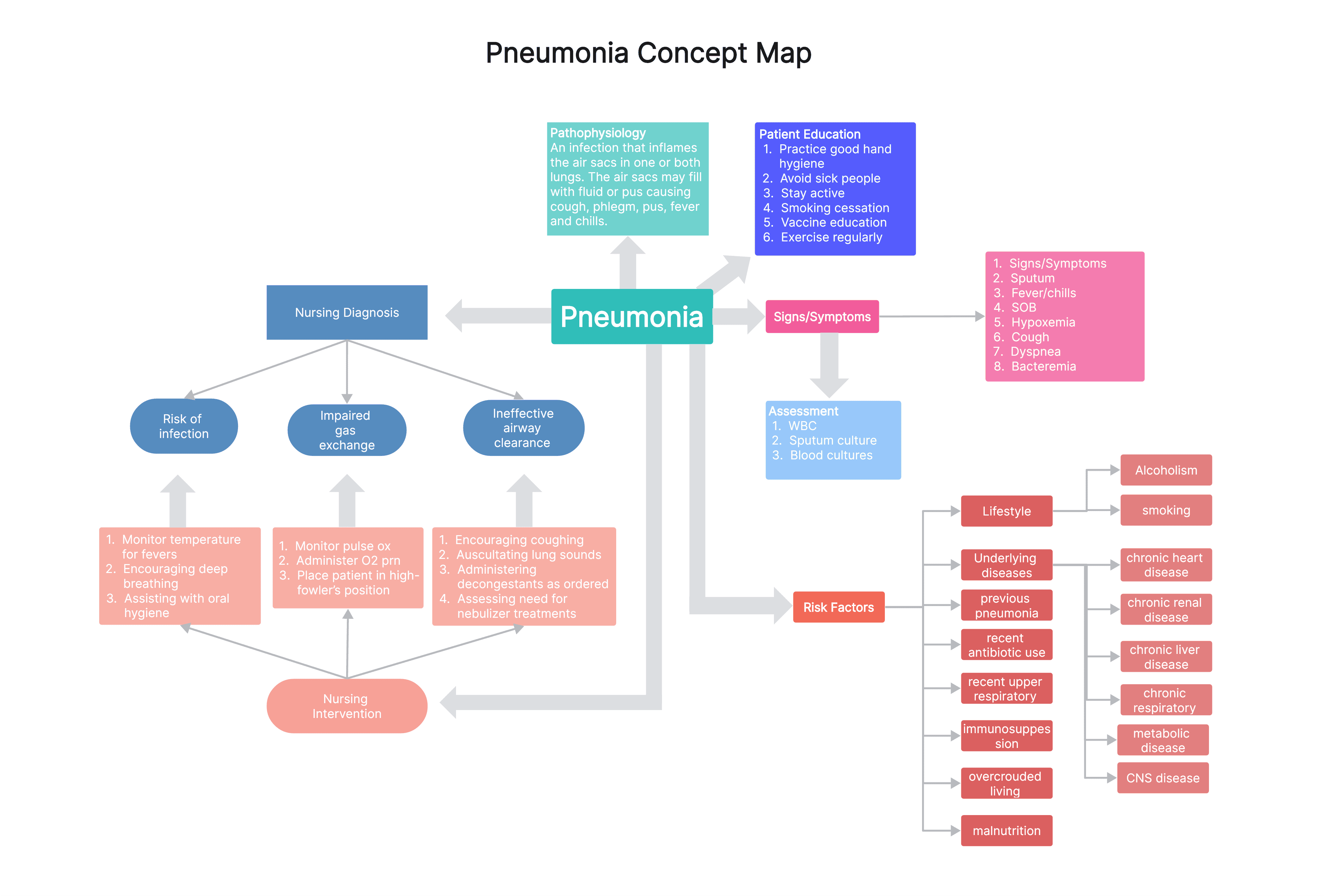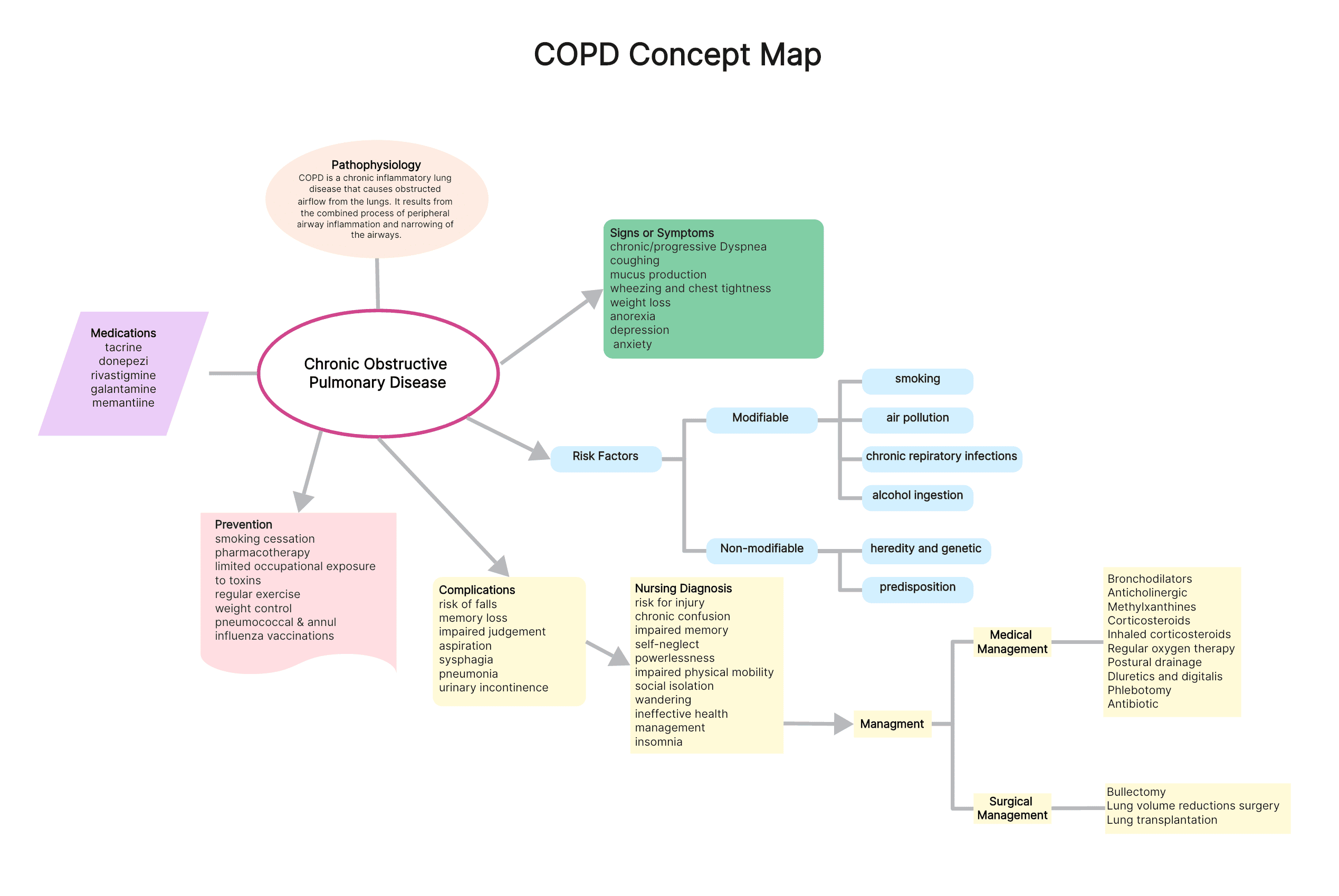About This Template
Feeling lost in the world of blood pressure readings? Hypertension, or high blood pressure, can be a complex topic. Our FREE Hypertension Concept Map Template offers a clear visual framework to organize information and gain a deeper understanding of this condition.
What is Hypertension?
Hypertension is a chronic condition where the force of blood pushing against your artery walls is consistently too high. This persistent pressure can damage the delicate lining of your arteries over time, leading to various health problems.
Understanding Blood Pressure Readings
Blood pressure is typically measured in millimeters of mercury (mmHg) and displayed with two numbers:
- Systolic pressure: This is the top number and represents the pressure in your arteries when your heart beats.
- Diastolic pressure: This is the bottom number and indicates the pressure in your arteries between heartbeats.
Normal Blood Pressure
A normal blood pressure reading is generally considered to be less than 120/80 mmHg.
Hypertension Stages
The American Heart Association defines different stages of hypertension based on blood pressure readings:
- Normal: Less than 120/80 mmHg
- Elevated: Systolic pressure between 120-129 mmHg and diastolic pressure less than 80 mmHg
- Stage 1 Hypertension: Systolic pressure between 130-139 mmHg or diastolic pressure between 80-89 mmHg
- Stage 2 Hypertension: Systolic pressure at least 140 mmHg or diastolic pressure at least 90 mmHg
Symptoms and Causes of Hypertension
Symptoms: Hypertension often has no noticeable symptoms in its early stages, earning it the nickname "silent killer." However, as blood pressure rises significantly, some people may experience:
- Headaches: These can be especially common in the morning.
- Nosebleeds: High blood pressure can put increased pressure on the delicate blood vessels in your nose, leading to bleeding.
- Shortness of breath: This can occur as your heart struggles to pump blood against the increased resistance in the arteries.
- Blurred vision: Damage to the blood vessels in your eyes can sometimes cause blurred vision.
- Dizziness: This can be a sign of reduced blood flow to the brain.
- Fatigue or confusion: These can occur due to decreased blood flow to vital organs.
Causes: The exact cause of high blood pressure is often unknown (primary hypertension). However, several factors can contribute:
- Lifestyle:
- Unhealthy diet: A diet high in sodium (salt), saturated and trans fats, and low in fruits, vegetables, and whole grains can contribute to high blood pressure.
- Lack of physical activity: Regular physical activity helps keep your blood pressure in check.
- Smoking: Smoking narrows your arteries and increases your blood pressure.
- Excessive alcohol consumption: Heavy alcohol intake can raise your blood pressure.
- Stress: Chronic stress can contribute to high blood pressure.
- Sleep apnea: This condition, where you repeatedly stop and start breathing during sleep, can disrupt blood pressure control.
- Medical conditions: Certain medical conditions can increase your risk of high blood pressure, including:
- Kidney disease: Your kidneys play a vital role in regulating blood pressure. When they're not functioning properly, blood pressure can rise.
- Diabetes: Diabetes can damage blood vessels and contribute to high blood pressure.
- Thyroid problems: An overactive or underactive thyroid gland can affect blood pressure.
- Family history: Having a family history of high blood pressure increases your risk.
FAQ About the Hypertension Concept Map
Who can benefit from using this template?
Anyone interested in understanding hypertension, including patients, healthcare professionals, and individuals concerned about their heart health.
What information should be included in the concept map?
Definition of hypertension, risk factors (diet, weight, genetics), symptoms, complications (heart disease, stroke), treatment options (lifestyle changes, medications), and patient education tips (healthy eating, stress management).
Can I customize this template?
Absolutely! This is a flexible tool. Adapt it to include specific details relevant to your situation or area of interest.
Free Download Your Hypertension Concept Map Template Today!
Empower yourself with knowledge! Download our FREE template today and unlock the power of visual learning. Click the Use Template button on this page to access this valuable resource.
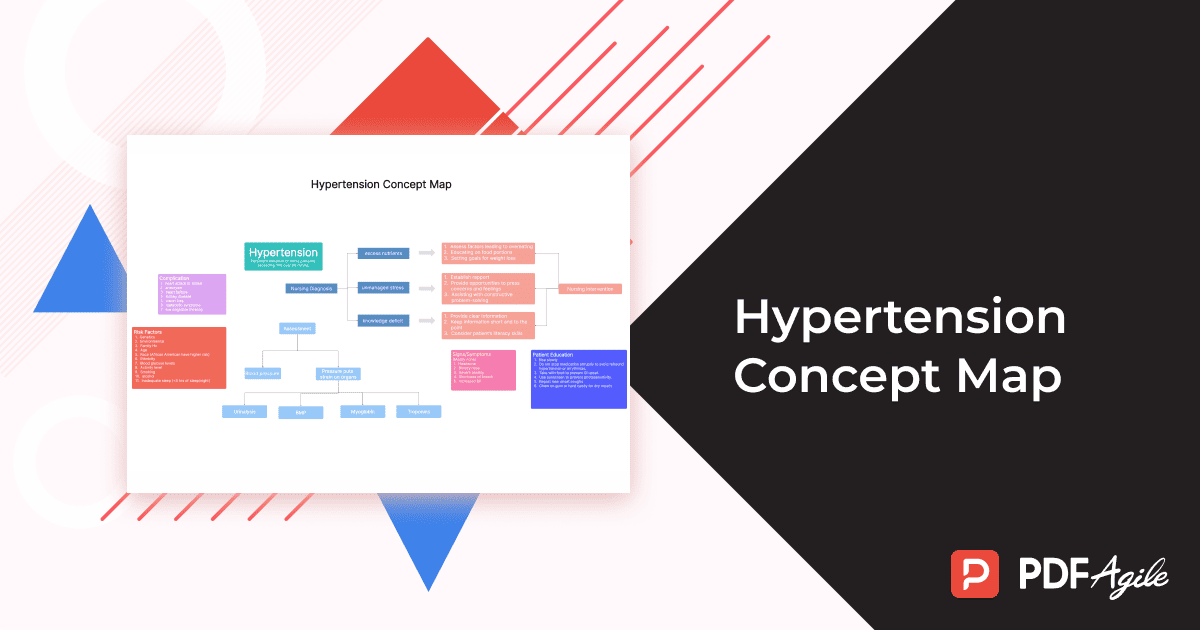
Visualize, Understand, Manage Your Blood Pressure
Hypertension concept maps empower both patients and healthcare professionals to understand and manage this chronic condition. Download your free template and start visualizing a healthier future for your heart!

